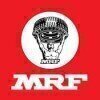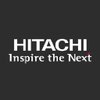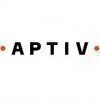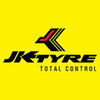


i
Brakes
India
Work with us
![]()
Filter interviews by
Brakes India Interview Questions and Answers
29 Interview questions
Actioning a breakdown involves systematic troubleshooting to identify and resolve electrical issues efficiently.
1. Identify the issue: Check for visible signs of damage or malfunction, such as burnt wires or tripped breakers.
2. Gather tools: Ensure you have the necessary tools, like multimeters, screwdrivers, and safety gear, ready for the task.
3. Isolate the problem: Disconnect power and test circuits to pinpoint...
Addressing long breakdowns involves systematic troubleshooting, communication, and preventive measures.
Identify the cause: Check for equipment failure, wiring issues, or external factors.
Communicate with stakeholders: Inform affected parties about the breakdown and expected resolution time.
Implement temporary solutions: Use backup systems or reroute power if possible.
Document the incident: Record details of the br...
PPC, or Pay-Per-Click, is an online advertising model where advertisers pay each time their ad is clicked, driving targeted traffic.
Cost-Effective: Advertisers only pay when users click on their ads, making it a budget-friendly option for driving traffic.
Targeted Advertising: PPC allows for precise targeting based on demographics, location, and user behavior, ensuring ads reach the right audience.
Search Engine Ads...
Stack up tolerance refers to the accumulation of tolerances in a series of components or parts that are assembled together.
Stack up tolerance is important in ensuring that all components fit together properly in an assembly.
It involves considering the individual tolerances of each component and how they may add up or cancel out when assembled.
For example, if a shaft has a tolerance of +/- 0.1mm and a hole has a to...
I have maintained various machines including CNC machines, hydraulic presses, and conveyor systems.
CNC machines
Hydraulic presses
Conveyor systems
To find the minimum in an array of strings, convert the strings to numbers and compare them.
Convert the strings to numbers using parseInt() or parseFloat()
Use Math.min() to find the minimum value
Handle edge cases like empty array or non-numeric strings
To find the shortest distance between two nodes, we can use algorithms like Dijkstra's or A*.
Use Dijkstra's algorithm to find the shortest path between two nodes in a graph
Implement A* algorithm for finding the shortest path in a grid-based environment
Consider using Floyd-Warshall algorithm for finding all pairs shortest paths in a graph
The angle of a drill bit refers to the angle between the cutting edge of the drill bit and the surface being drilled.
The angle of a drill bit is typically measured in degrees.
Common drill bit angles include 118 degrees for general purpose drilling and 135 degrees for drilling harder materials.
The angle of the drill bit affects the performance and efficiency of the drilling process.
Different types of drill bits hav...
Machining process involves cutting, shaping, or finishing materials using a cutting tool. Common types include turning, milling, drilling, and grinding.
Types of machining processes: turning, milling, drilling, grinding, etc.
Types of materials used in cutting tools: high-speed steel, carbide, ceramic, diamond, etc.
Examples: Turning - using a lathe to rotate a workpiece and cut material with a single-point cutting t...
Pressure is the force applied perpendicular to the surface of an object per unit area.
Pressure is measured in units such as Pascals (Pa) or pounds per square inch (psi).
Pressure can be calculated using the formula: Pressure = Force / Area.
Examples of pressure include atmospheric pressure, water pressure, and blood pressure.
Brakes India Interview Experiences
80 interviews found
I applied via Naukri.com and was interviewed in Nov 2024. There was 1 interview round.
(2 Questions)
- Q1. Can you tell me about yourself?
- Ans.
Experienced marketing professional with a background in digital marketing and brand management.
Over 5 years of experience in developing and implementing marketing strategies
Skilled in social media marketing, SEO, and email campaigns
Managed successful product launches and rebranding initiatives
Strong analytical skills to track and measure campaign performance
- Q2. Can you describe your past work experience?
- Ans.
I have over 5 years of experience in marketing roles, including developing and implementing marketing strategies, managing social media campaigns, and analyzing market trends.
Developed and executed marketing strategies to increase brand awareness and drive sales
Managed social media campaigns across multiple platforms to engage with target audience
Analyzed market trends and competitor activities to identify opportunitie...
I appeared for an interview in May 2025, where I was asked the following questions.
- Q1. Role and responsibilities
- Q2. How to action breakdown
- Ans.
Actioning a breakdown involves systematic troubleshooting to identify and resolve electrical issues efficiently.
1. Identify the issue: Check for visible signs of damage or malfunction, such as burnt wires or tripped breakers.
2. Gather tools: Ensure you have the necessary tools, like multimeters, screwdrivers, and safety gear, ready for the task.
3. Isolate the problem: Disconnect power and test circuits to pinpoint the ...
- Q3. What to do action Long breakdown
- Ans.
Addressing long breakdowns involves systematic troubleshooting, communication, and preventive measures.
Identify the cause: Check for equipment failure, wiring issues, or external factors.
Communicate with stakeholders: Inform affected parties about the breakdown and expected resolution time.
Implement temporary solutions: Use backup systems or reroute power if possible.
Document the incident: Record details of the breakdo...
Interview Preparation Tips
I applied via Naukri.com and was interviewed in Oct 2024. There was 1 interview round.
(4 Questions)
- Q1. Production planning control
- Q2. Material planning as per kanban
- Q3. Man power handling
- Q4. Consumables usage as per norms
- Ans.
Monitoring consumables usage to ensure adherence to established norms.
Regularly track and record consumables usage
Compare actual usage to established norms
Identify any deviations and investigate the reasons
Implement corrective actions if necessary
Ensure proper training for staff on consumables usage
Interview Preparation Tips
- PPC
- Man power handling
- Kanban
- Material Planning
- Technical Support
I appeared for an interview in Apr 2025, where I was asked the following questions.
- Q1. Quality control
- Q2. General questions
I appeared for an interview in Mar 2025, where I was asked the following questions.
- Q1. Quality department Related
- Q2. Inspection details
- Q3. Personal details
(1 Question)
- Q1. General question
(2 Questions)
- Q1. General question
- Q2. Before working experience
- Ans.
I gained practical experience through internships and projects during my studies.
Completed internships at XYZ Company and ABC Company
Worked on a project to optimize production processes at university
Applied theoretical knowledge in real-world scenarios
I appeared for an interview in Nov 2024, where I was asked the following questions.
- Q1. What tha ppc
- Ans.
PPC, or Pay-Per-Click, is an online advertising model where advertisers pay each time their ad is clicked, driving targeted traffic.
Cost-Effective: Advertisers only pay when users click on their ads, making it a budget-friendly option for driving traffic.
Targeted Advertising: PPC allows for precise targeting based on demographics, location, and user behavior, ensuring ads reach the right audience.
Search Engine Ads: Goo...
- Q2. How handedly to manpower
- Ans.
Effective manpower management involves strategic planning, resource allocation, and performance monitoring to optimize workforce productivity.
Strategic Planning: Assess workforce needs based on project requirements and future goals, ensuring the right number of employees are in place.
Resource Allocation: Distribute tasks based on employee strengths and skills, such as assigning a data analyst to handle complex data set...
- Q1. Self introduction
- Q2. Group discussion
- Q3. Resume questions
- Q1. Self introduction
- Q2. Group discussion
- Q3. Resume questions
I applied via Approached by Company and was interviewed in Jun 2024. There were 3 interview rounds.
(2 Questions)
- Q1. What works for Barack india PVT LTD
- Q2. What is the reason for leaving your company??
(2 Questions)
- Q1. Hr requested question .
- Q2. Hr requested questions .
What work for old company..
Interview Preparation Tips
Top trending discussions






Brakes India Interview FAQs
The duration of Brakes India interview process can vary, but typically it takes about less than 2 weeks to complete.
Tell us how to improve this page.
Brakes India Interviews By Designations
- Brakes India Production Engineer Interview Questions
- Brakes India Graduate Engineer Trainee (Get) Interview Questions
- Brakes India Junior Engineer Interview Questions
- Brakes India Design Engineer Interview Questions
- Brakes India Trainee Interview Questions
- Brakes India Senior Engineer Interview Questions
- Brakes India Factory Medical Officer Interview Questions
- Brakes India Assistant Technician Interview Questions
- Show more
Interview Questions for Popular Designations
- Production Engineer Interview Questions
- Graduate Engineer Trainee (Get) Interview Questions
- Junior Engineer Interview Questions
- Analyst Interview Questions
- Business Analyst Interview Questions
- Java Developer Interview Questions
- Senior Software Engineer Interview Questions
- Data Analyst Interview Questions
- Show more
Overall Interview Experience Rating
based on 84 interview experiences
Difficulty level
Duration
Interview Questions from Similar Companies
Brakes India Reviews and Ratings
based on 1.8k reviews
Rating in categories
|
Trainee
265
salaries
| ₹1.1 L/yr - ₹3 L/yr |
|
Engineer
259
salaries
| ₹4 L/yr - ₹9.5 L/yr |
|
Junior Engineer
201
salaries
| ₹1.5 L/yr - ₹5 L/yr |
|
Senior Engineer
155
salaries
| ₹5.7 L/yr - ₹11.5 L/yr |
|
Assistant Manager
132
salaries
| ₹8.9 L/yr - ₹16.8 L/yr |

Bosch

Samvardhana Motherson Group

MRF Tyres

UNO Minda
- Home >
- Interviews >
- Brakes India Interview Questions










